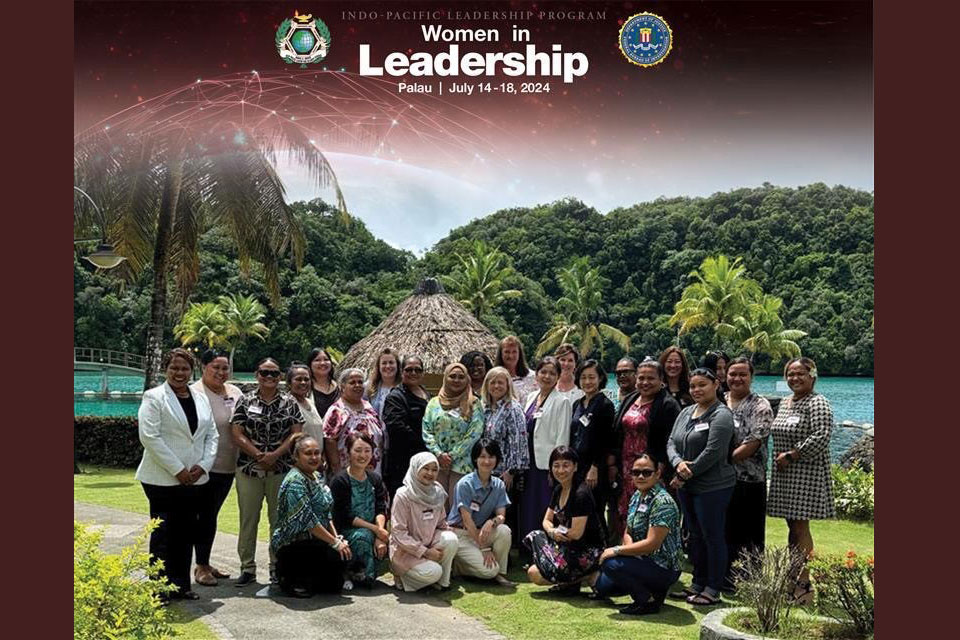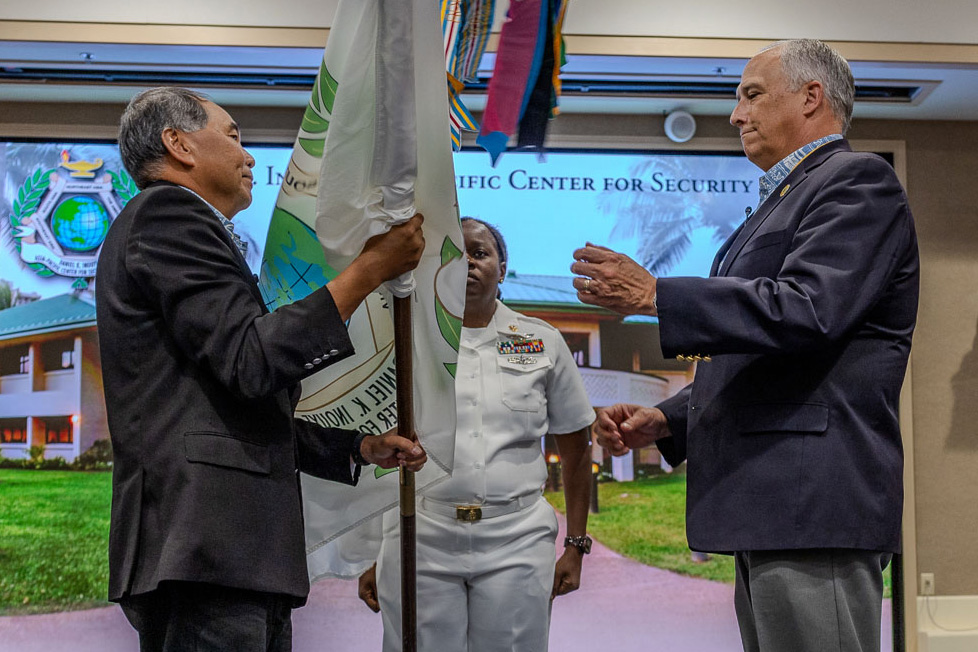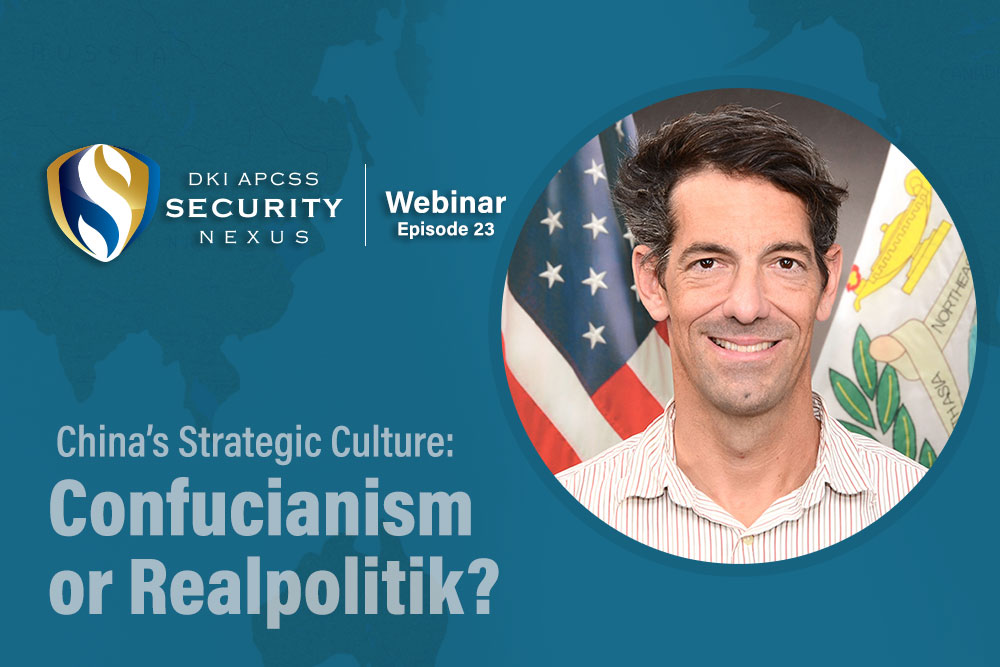By James M. Minnich
Nestled in Southeast Asia, Myanmar’s story unfolds like a tapestry woven with threads of hope and resilience, yet darkened by the shadows of ongoing conflict. From the vibrant heart of Honolulu, Hawaii, the Daniel K. Inouye Asia-Pacific Center for Security Studies hosted the 8th episode of its Security Nexus | Webinar on February 12th, titled “Myanmar: Three Years of Conflict, What’s Next?”
This episode, hosted by retired U.S. Army Colonel and Professor James Minnich, took a deep dive into Myanmar’s prolonged conflict and pondered the future paths the country might take.
The webinar featured Professor Miemie Winn Byrd, a renowned expert on Myanmar’s security and political landscape. Her insights provided a foundation for understanding the complexities of Myanmar’s situation, which has been mired in conflict since its independence from Great Britain in 1948.
Myanmar’s journey has been fraught with struggles, oscillating between military rule and brief stints of civilian governance, culminating in the February 2021 military coup that dismantled the burgeoning democratic governance under Daw Aung San Suu Kyi’s National League for Democracy.
This coup set the stage for the current state of turmoil, characterized by the Spring Revolution—a nationwide uprising that transitioned into an armed conflict as the military cracked down on peaceful protests. Three years into this intensified conflict, Myanmar faces a dire humanitarian crisis, with rampant human rights abuses and a significant displacement crisis.
Professor Byrd’s discussion with Dr. Minnich shed light on the strategic gains of the Ethnic Armed Organizations (EAO) and the People’s Defense Forces (PDF), highlighting the weakening grip of the military junta amid escalating insurgencies in various states. The conversation navigated through the intricacies of Myanmar’s political, social, and international challenges, examining the prospects for stability, the potential for democratic restoration, and the implications for regional and global politics.
A pivotal aspect of the webinar was the focus on the international community’s role and the effectiveness of sanctions imposed by global powers. The dialogue explored strategies beyond punitive measures, emphasizing the need for a nuanced approach that pairs humanitarian aid with support for democracy. The inclusion of the BURMA Act 2022 in the 2023 National Defense Authorization Act was critiqued for its limited impact, prompting a discussion on how the U.S. could better support Myanmar’s democratic aspirations.
The geopolitical influences of China and Russia, their distinct strategies, and the implications for Myanmar’s political landscape and regional stability were also critical points of discussion. The webinar did not shy away from addressing the severe impact of the conflict on women and minorities, urging a concerted international effort to mitigate abuses and provide justice.
As the webinar transitioned to audience questions, topics like the China-Myanmar Economic Corridor (CMEC), the spillover effects of the conflict into neighboring regions, and the prospects for future elections under the junta’s extended emergency rule were explored. The ability of the National Unity Government (NUG) to govern post-conflict was also debated, underscoring the challenges and opportunities facing Myanmar’s path to recovery.
To gain a more profound understanding of the situation in Myanmar, Professor Byrd recommended the book “An Unlikely Prisoner: How an Eternal Optimist Found Hope in Myanmar’s Most Notorious Jail,” written by Sean Turnell and published by Penguin Random House in November 2023.
This episode of SNW provided a comprehensive analysis of Myanmar’s ongoing conflict, drawing on expert insights to illuminate the multifaceted challenges and potential pathways toward resolution. As Myanmar stands at a critical juncture, the international community’s response and support for the democratic movement remain crucial factors in shaping the country’s future trajectory.









Good luck :)